|
The world’s most influential meeting on HIV – the International AIDS Society Conference on HIV Science - kicks off in Mexico City on Sunday. The biennial event sets the gold standard for HIV research and features diverse and cutting edge studies.
One topic that will be on the agenda is how to manage population groups that are most vulnerable to HIV infection. A recent study in Kenya shed light on the fact that the country’s HIV prevention policies don’t always work for transgender women and men who have sex with men. As Makobu Kimmani explains, the fact that same sex relationships are illegal in the country, and that transgender women aren’t recognised, means they aren’t
benefiting from interventions.
A range of articles published over the past year also touch on key topics. A particular area of interest is young people’s vulnerability to infection. Franziska Meinck explores how government policies such as free schooling can mitigate risky sexual behaviour in adolescent girls, while Linet Imbosa Muhati-Nyakundi looks at what support structures preschools have in place for children living with HIV. For her part Bonnie Fournier explores the use of an ancient tradition
to bring issues of stigma to the fore in Ugandan schools.
On the prevention front, Glenda Gray unpacks major research taking place towards finding an HIV vaccine, while Linda-Gail Bekker highlights the need for effective use of prevention tools. And
Michelle Moorhouse and Francois Venter focus on the challenges of getting people to adhere to treatment regimes.
|
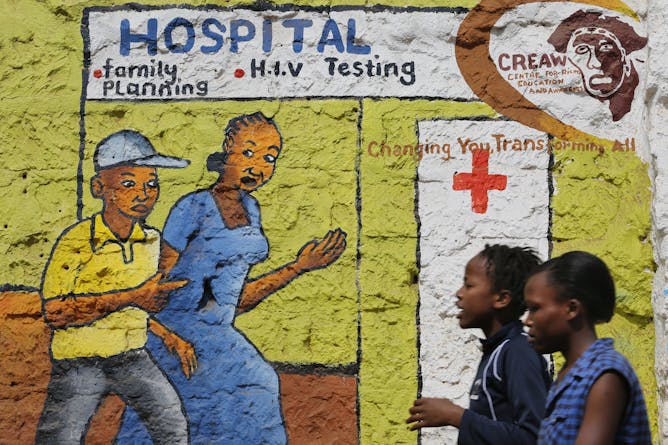
Women walk past a mural painted to raise awareness on HIV and AIDS in Kibera slum in Nairobi, Kenya.
EPA/Dai Kurokawa
Makobu Kimani, Kenya Medical Research Institute
The government needs to revise national guidelines to better target PrEP at those that would most benefit from it.
|
|
|
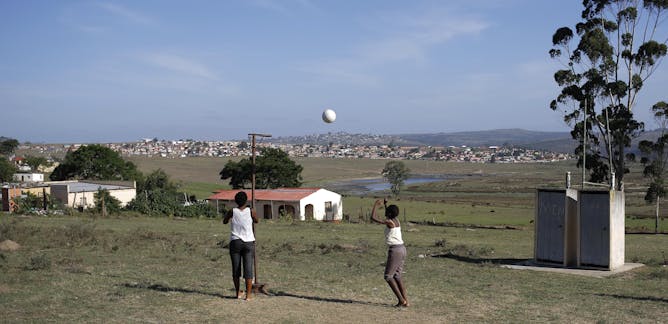
Franziska Meinck, University of Oxford
Adolescent girls experience a number of vulnerabilities which incease their risk of engaging in risky sexual behaviours.
| |
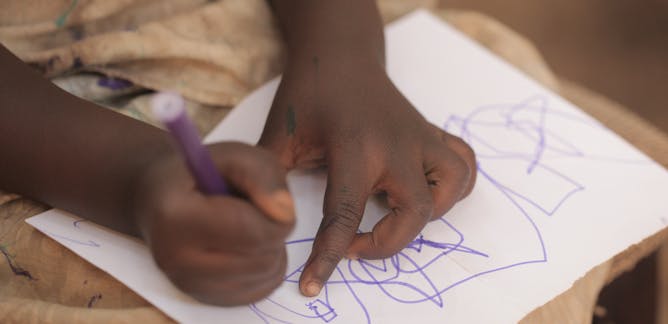
Linet Imbosa Muhati-Nyakundi, University of Johannesburg
Secrecy around the HIV-positive status of young children in school is denying them the care and support they need for a good start.
|

Bonnie Fournier, Thompson Rivers University
Addressing HIV stigma through utilising the Acholi’s own local cultural system is an empowering process that will position the role of the elders back into the community.
| |

Glenda Gray, South African Medical Research Council
Researchers around the world are working hard to find a vaccine that is safe and effective.
|
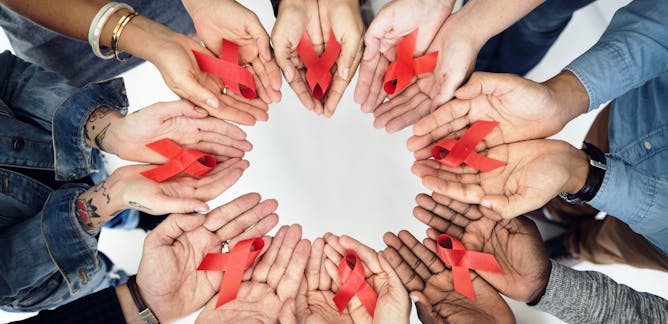
Linda-Gail Bekker, University of Cape Town
Until then we need to get effective, accessible treatment for all who need it, while deploying the many prevention tools at our disposal.
| |
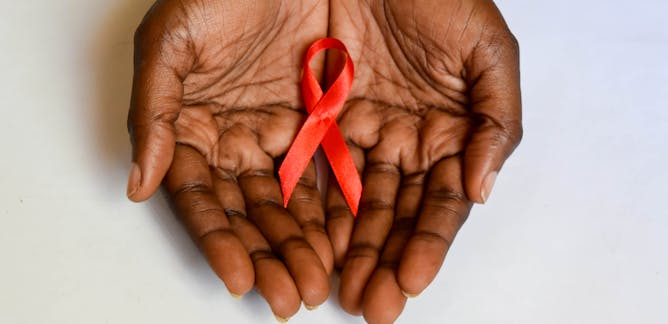
Michelle Moorhouse, University of the Witwatersrand; Willem Daniel Francois Venter, University of the Witwatersrand
Most of the reasons people don’t take their medication aren't related to the antiretrovirals themselves, but rather social and systemic issues.
|
|
|